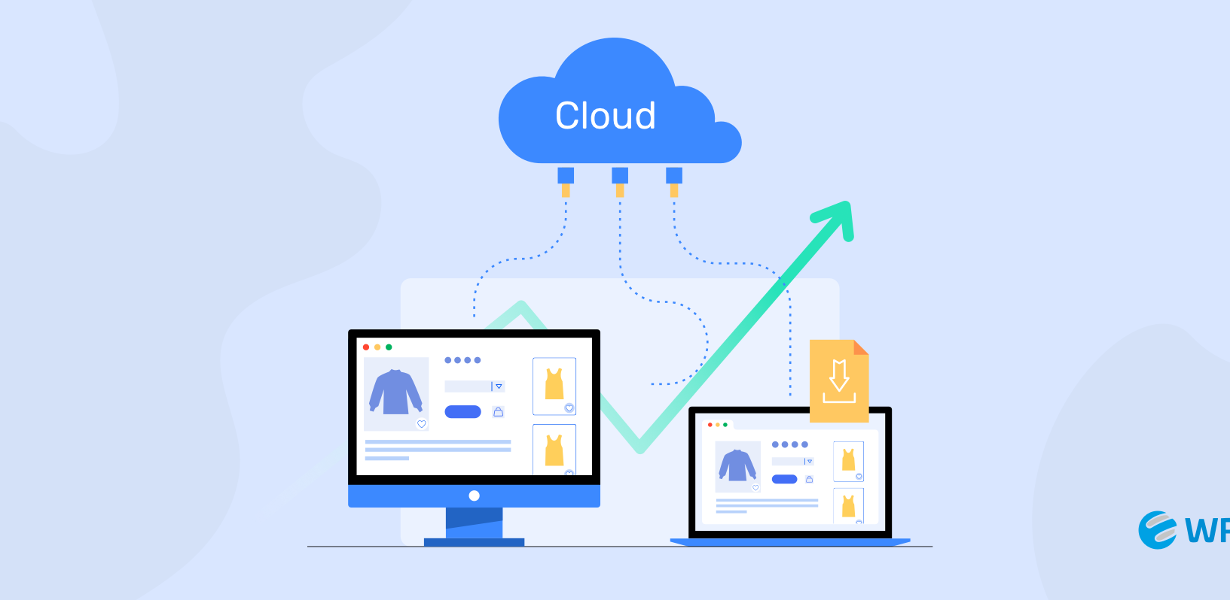
In the ever-evolving landscape of technology, small businesses are continually seeking ways to leverage the power of the digital realm to enhance their operations. As we enter 2023, the role of technology in empowering small businesses has become more critical than ever before. In this comprehensive guide, we will delve into the intricacies of Small Business Cloud Solutions, shedding light on how these innovative tools can be a game-changer for your business.
Understanding the Small Business Cloud Landscape
Small businesses have been increasingly migrating their operations to the cloud. But what exactly is the small business cloud landscape, and why is it so crucial? The Small Business Cloud Landscape encompasses a myriad of digital tools and services specifically designed to cater to the unique needs of small and medium-sized enterprises (SMEs). These cloud solutions enable businesses to streamline their operations, reduce costs, enhance collaboration, and scale efficiently.
The adoption of cloud solutions among SMEs has been on the rise due to several key benefits:
Cost-Efficiency: Small businesses can save substantial capital expenses on hardware and IT infrastructure.
Scalability: Cloud solutions allow businesses to scale up or down as needed, providing flexibility.
Remote Work: The cloud facilitates remote work, enabling businesses to adapt to changing work environments.
Enhanced Security: Many cloud providers offer robust security measures to protect business data.
The Versatility of Small Business Cloud Solutions
Small business cloud solutions come in various forms, catering to different aspects of your business. Let’s explore some of the most impactful categories:
Cloud Storage Solutions
Small businesses can access, store, and share data effortlessly with cloud storage solutions. Leading providers such as Dropbox, Google Drive, and Microsoft OneDrive offer reliable, secure, and easily accessible storage options. This facilitates seamless collaboration among team members, allowing them to work on documents in real-time.
Business Management Software
For efficient business operations, consider adopting cloud-based management software. Tools like QuickBooks, Zoho Books, and Xero can streamline your financial management processes. You can track expenses, manage invoices, and gain insights into your company’s financial health.
Collaboration and Communication Tools
In today’s business environment, effective communication and collaboration are paramount. Cloud-based tools like Microsoft Teams, Slack, and Zoom offer video conferencing, instant messaging, and document sharing features that foster teamwork regardless of physical location.
Customer Relationship Management (CRM)
Maintaining strong relationships with customers is vital. CRMs like Salesforce and HubSpot provide small businesses with the ability to manage leads, track interactions, and improve customer service.
E-commerce Solutions
Small businesses venturing into online sales can benefit from e-commerce platforms like Shopify and WooCommerce. These platforms offer customizable online stores, secure payment processing, and inventory management.
Key Considerations for Small Business Cloud Solutions
Before adopting small business cloud solutions, it’s essential to consider the following factors:
Security: Ensure that the chosen cloud solutions offer robust security features to protect sensitive business data.
Scalability: Opt for tools that can grow with your business and accommodate increased workloads.
User-Friendliness: The ease of use is essential for smooth adoption and minimal training requirements.
Integration: Choose solutions that can seamlessly integrate with your existing software and systems.
Cost-Efficiency: Evaluate the pricing structures of different cloud solutions to determine the best fit for your budget.
Final Words
In 2023, Small Business Cloud Solutions represent a powerful avenue for small businesses to harness the potential of technology. Whether it’s optimizing operations, enhancing collaboration, or scaling efficiently, these tools are a testament to the digital transformation era we are currently in. To stay competitive in the modern business landscape, embracing cloud solutions is not just a choice but a necessity.
Commonly Asked Questions
1. What is the best cloud storage solution for a small business?
The ideal choice depends on your specific needs, but popular options include Dropbox, Google Drive, and Microsoft OneDrive. Consider factors like storage capacity, security, and collaboration features when making your decision.
2. How can small businesses ensure data security in the cloud?
Small businesses should prioritize security by using strong, unique passwords, enabling two-factor authentication, and regularly updating their software. It’s also crucial to choose a cloud provider with robust security measures.
3. Are cloud-based CRMs suitable for small businesses?
Yes, cloud-based CRMs like Salesforce and HubSpot are well-suited for small businesses. They offer features to manage leads, track interactions, and improve customer relationships.
4. Can I customize my e-commerce store on cloud-based platforms like Shopify?
Yes, platforms like Shopify offer extensive customization options. You can design your online store to match your brand, add products, and manage your inventory with ease.
5. How can I ensure the seamless integration of cloud solutions with my existing software?
To ensure smooth integration, choose cloud solutions that offer APIs (Application Programming Interfaces) for connecting with other software. You may also consider consulting with IT professionals or the cloud provider’s support team for assistance.
Advertisement







